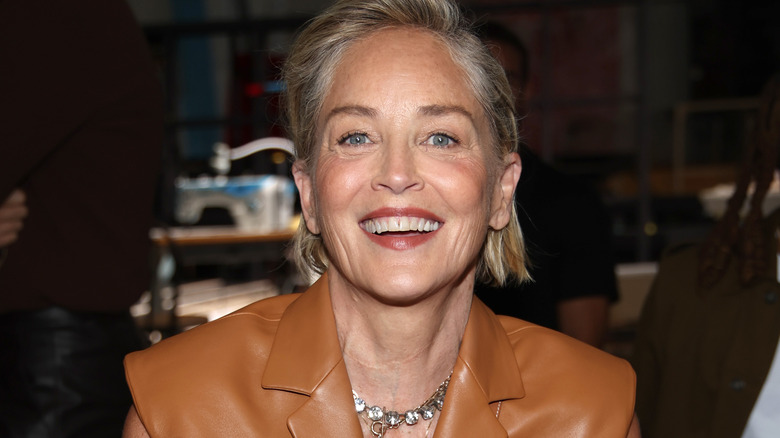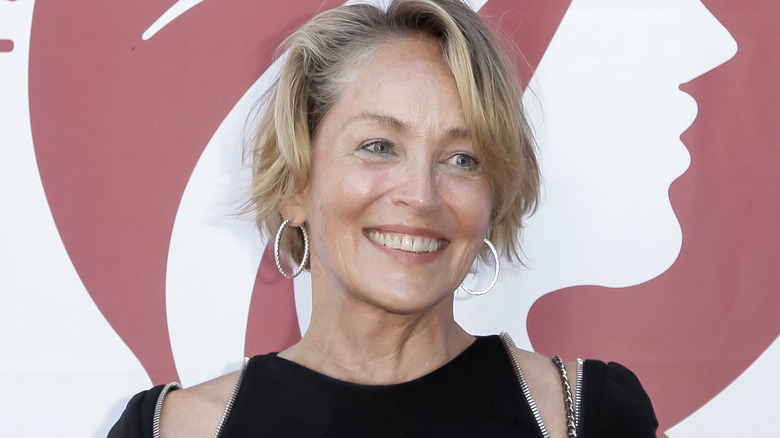Sharon Stone Alleges Sexual Harassment By Former Sony Movie Boss
Superstar '90s actor Sharon Stone guested on the November 7 episode of Kelly Ripa's Sirius XM show and podcast "Let's Talk Off Camera," during which she recounted experiencing sexual harassment by a former Sony Pictures boss.
At around the episode's 36:22 mark, Stone recounts meeting with an unnamed Sony executive soon after she first moved to Los Angeles for her acting career. Going into this meeting she was excited to meet this person she describes as the head of Sony at the time, at some point during the '80s. While she sat on a couch in his office, she recalls, he began singing her praises as a talent the likes of which Hollywood hadn't seen in decades. Stone alleges that after several other compliments, he then physically approached her and exposed himself.
"I started laughing and crying at the same time, and I couldn't stop because I became hysterical. I couldn't stop, so he didn't know what to do. So, of course, he put it away," she says. "So, I was just sitting there hysterical and eventually his secretary came and led me out, right? But this was not the last of many weird experiences like this in my career."
Sharon Stone is hesitant to name names
While this interview with Kelly Ripa marks the first time Sharon Stone has detailed a specific incident of sexual harassment in Hollywood, it doesn't sound like the only such experience in her career. Notably, Sharon Stone was significantly affected by "Basic Instinct," the Paul Verhoeven feature that both earned her acclaim and brought her undue derision in equal measure. A notoriously revealing scene, she has claimed on multiple occasions, made the film's final cut without her knowledge, leading her to at one point request that the scene be cut from the movie.
Meanwhile, while she alludes to additional experiences at the end of her Sony executive story during her Ripa interview, earlier on in their conversation she specifies just why she remains cagey about precise details. At around the episode's 29:48 mark, Stone explains that she finds laws regarding women's rights to be lacking. Because of the fact that the law is, by her estimation, unable to sufficiently hold men accountable, she's hesitant to name people she feels have wronged her. "That's why I didn't name names during #MeToo," she says. "Because there were no misdemeanors. And there were no felonies."
Lacking the ability to criminally convict men for such behavior, she thinks that detailed allegations are dangerous for the accuser and prefers not to open herself up to perhaps inevitable pushback. It's seemingly for this dispiriting reason, then, that she maintains the Sony boss' anonymity.

